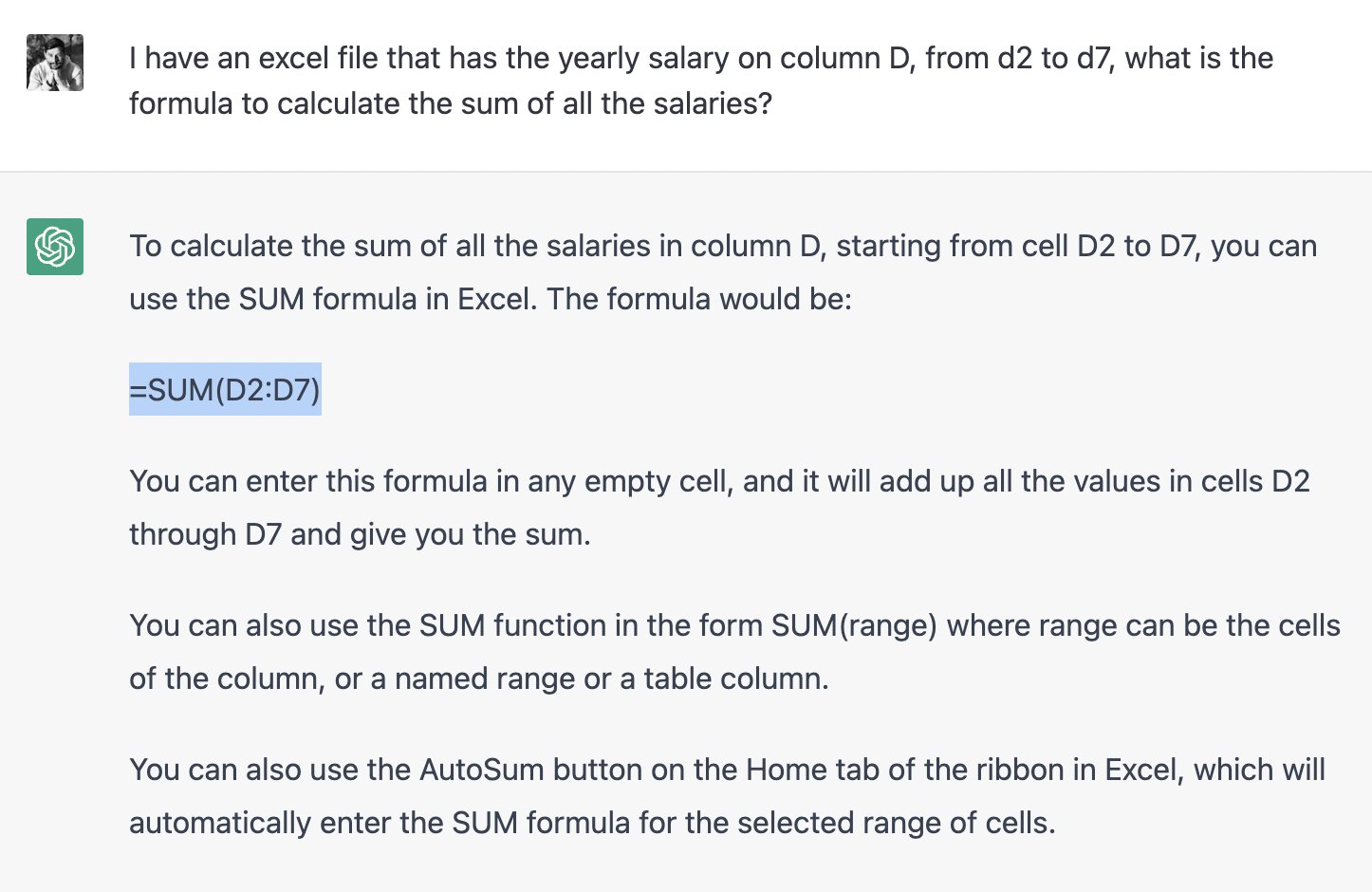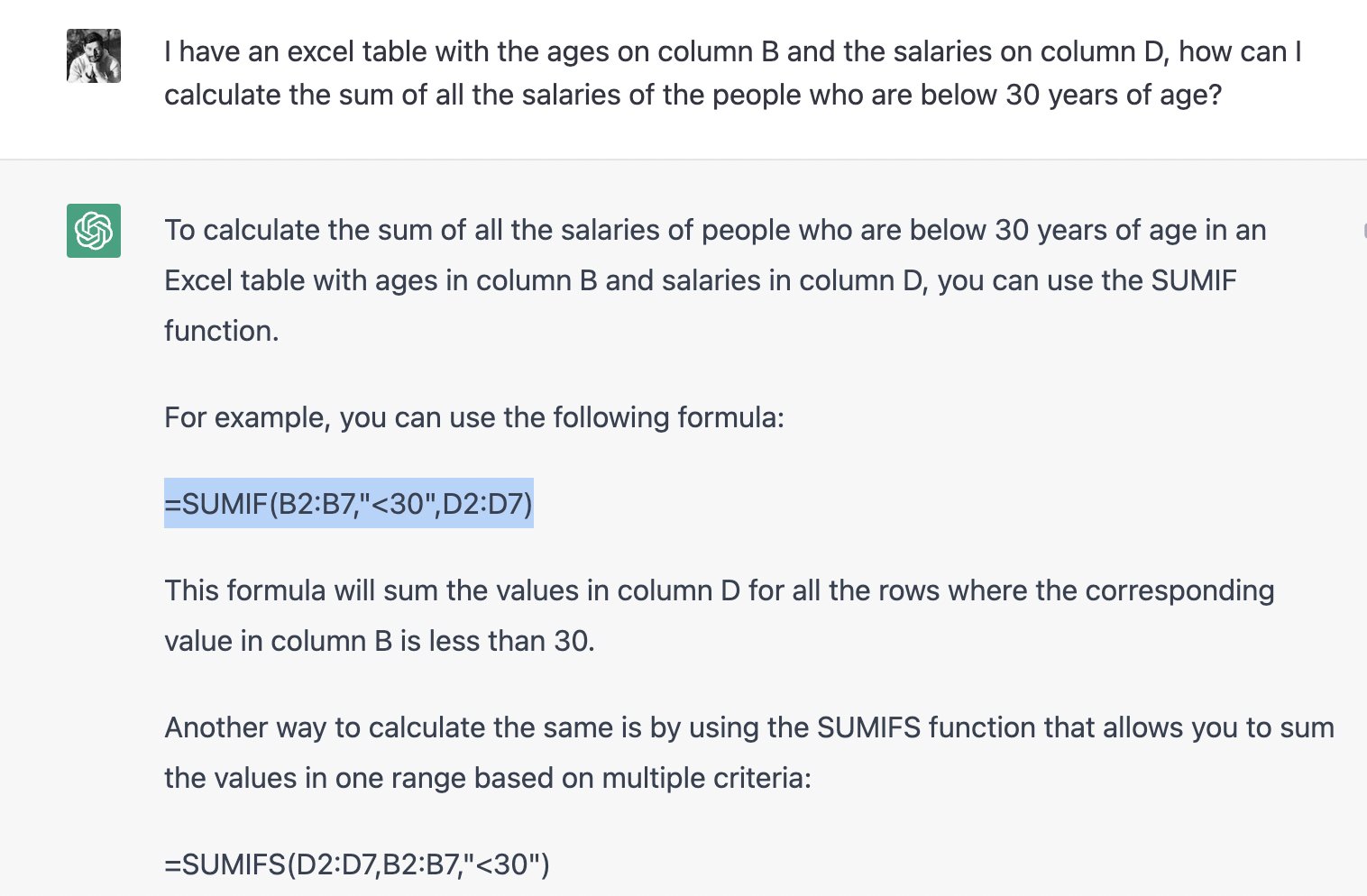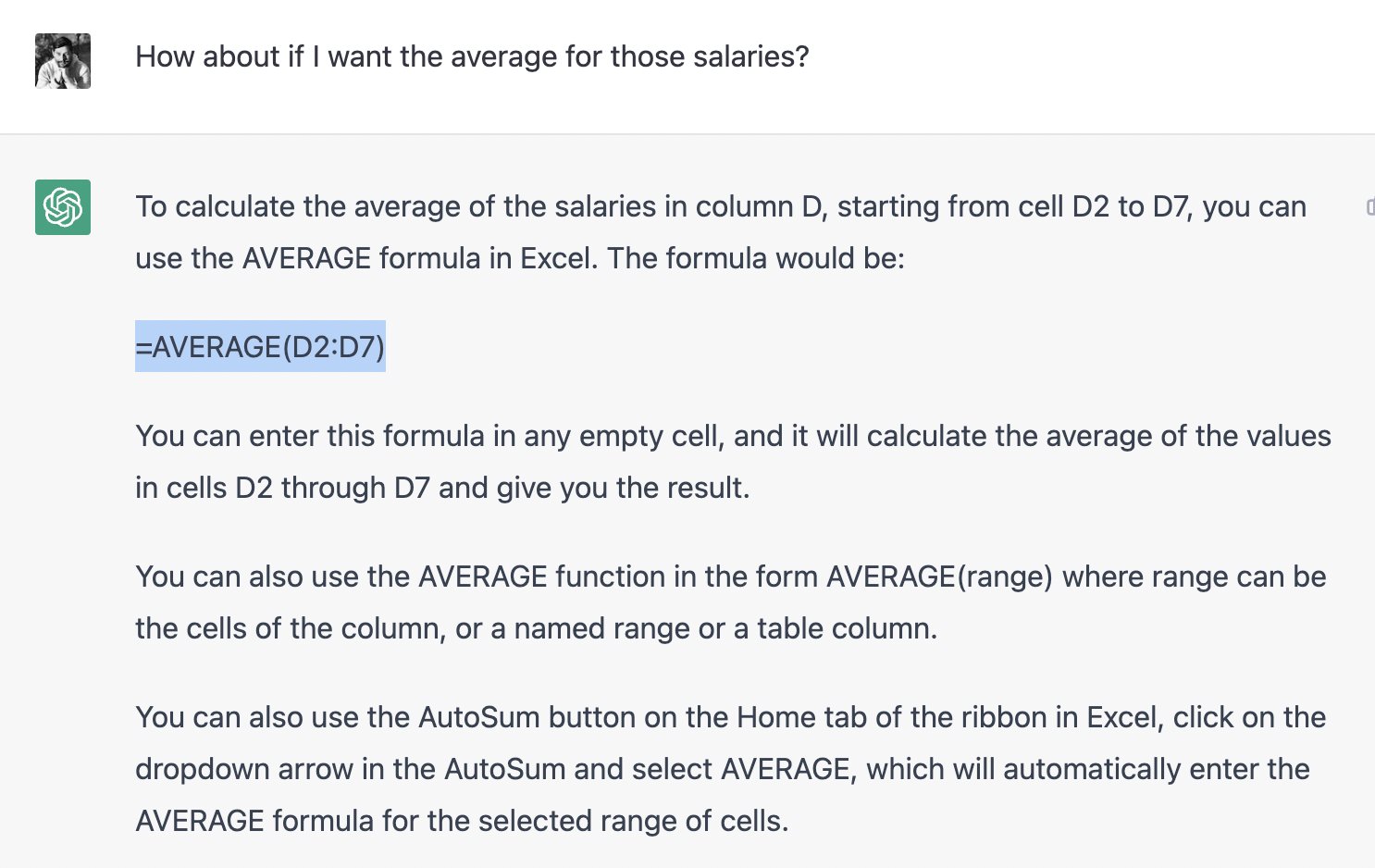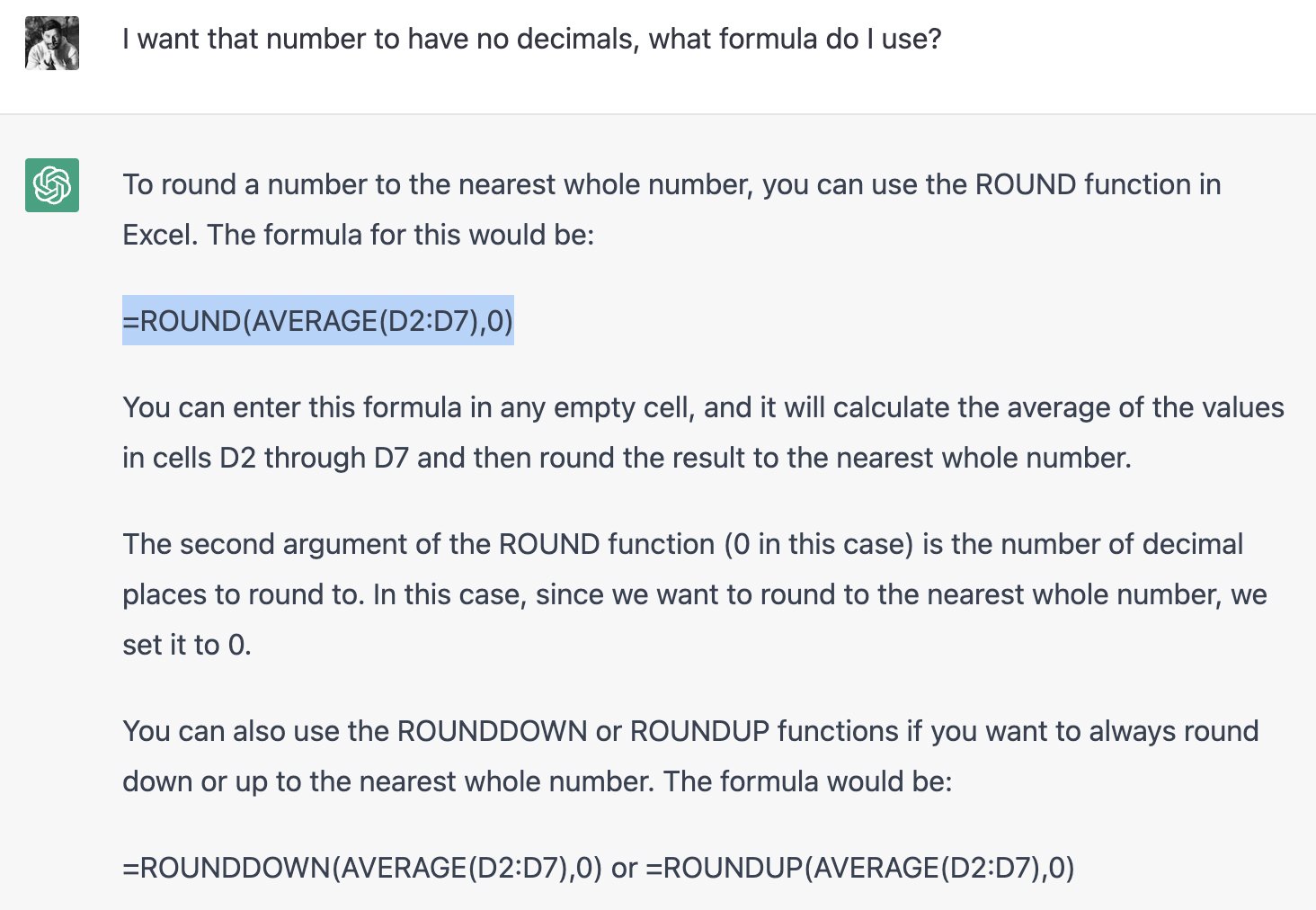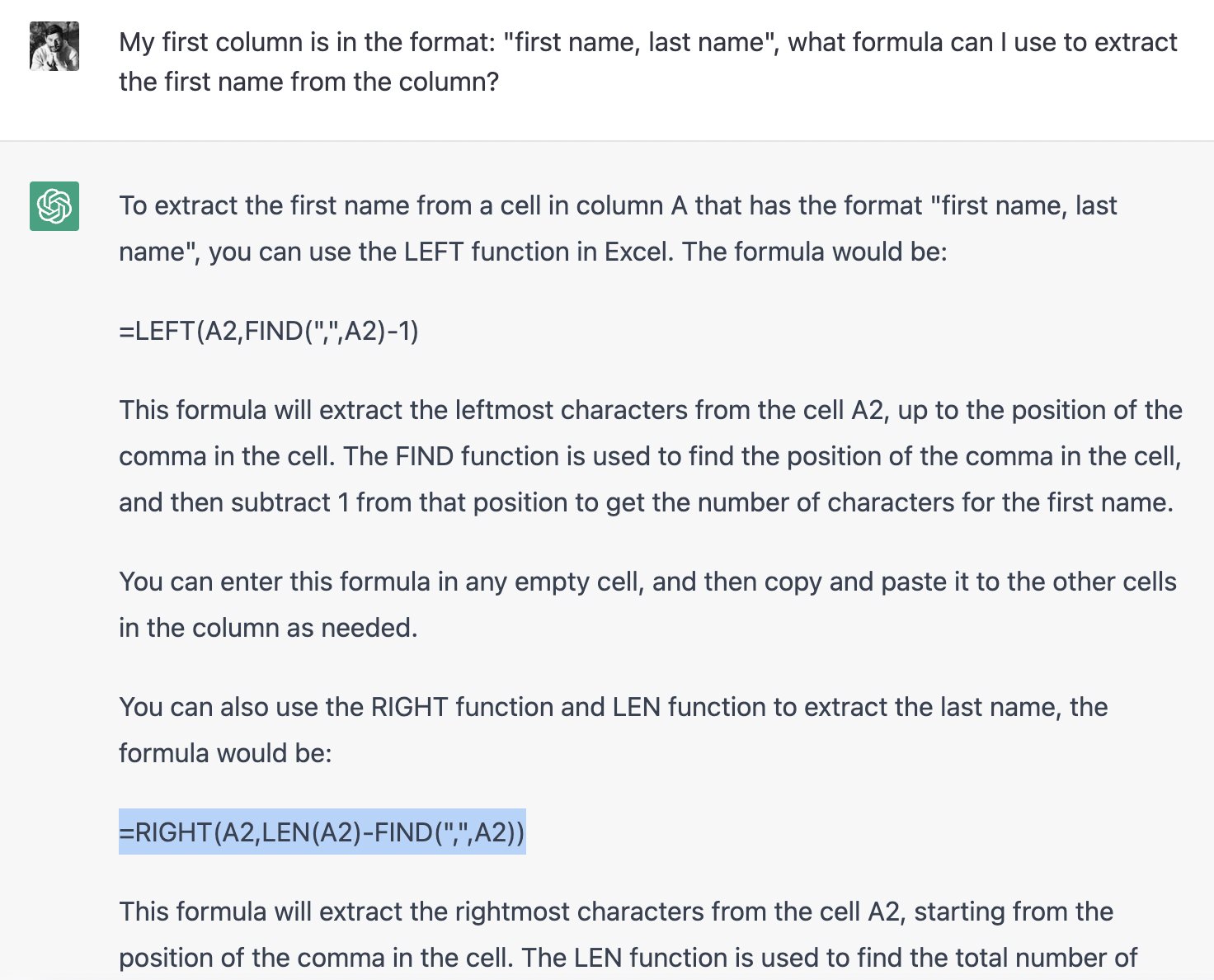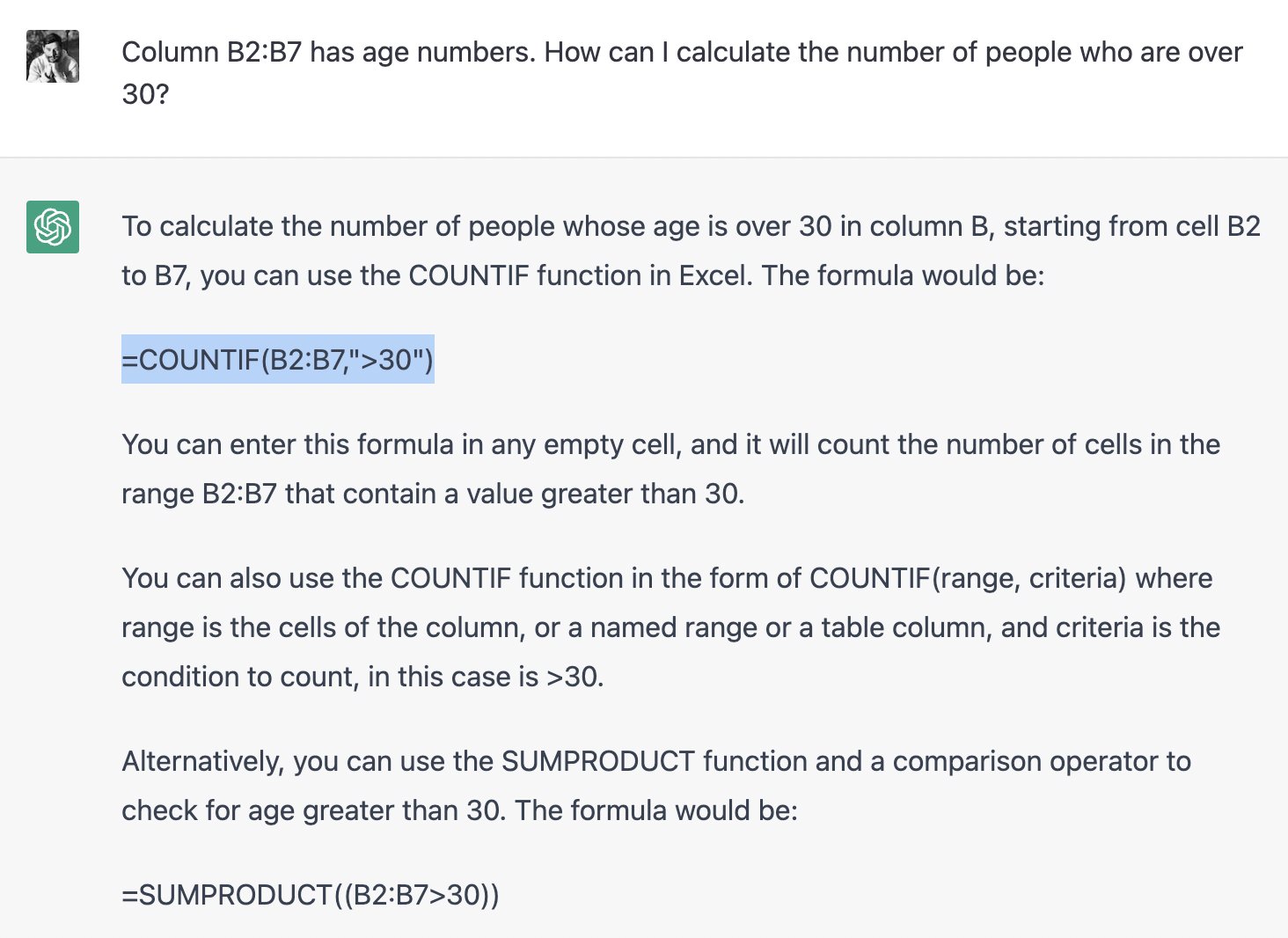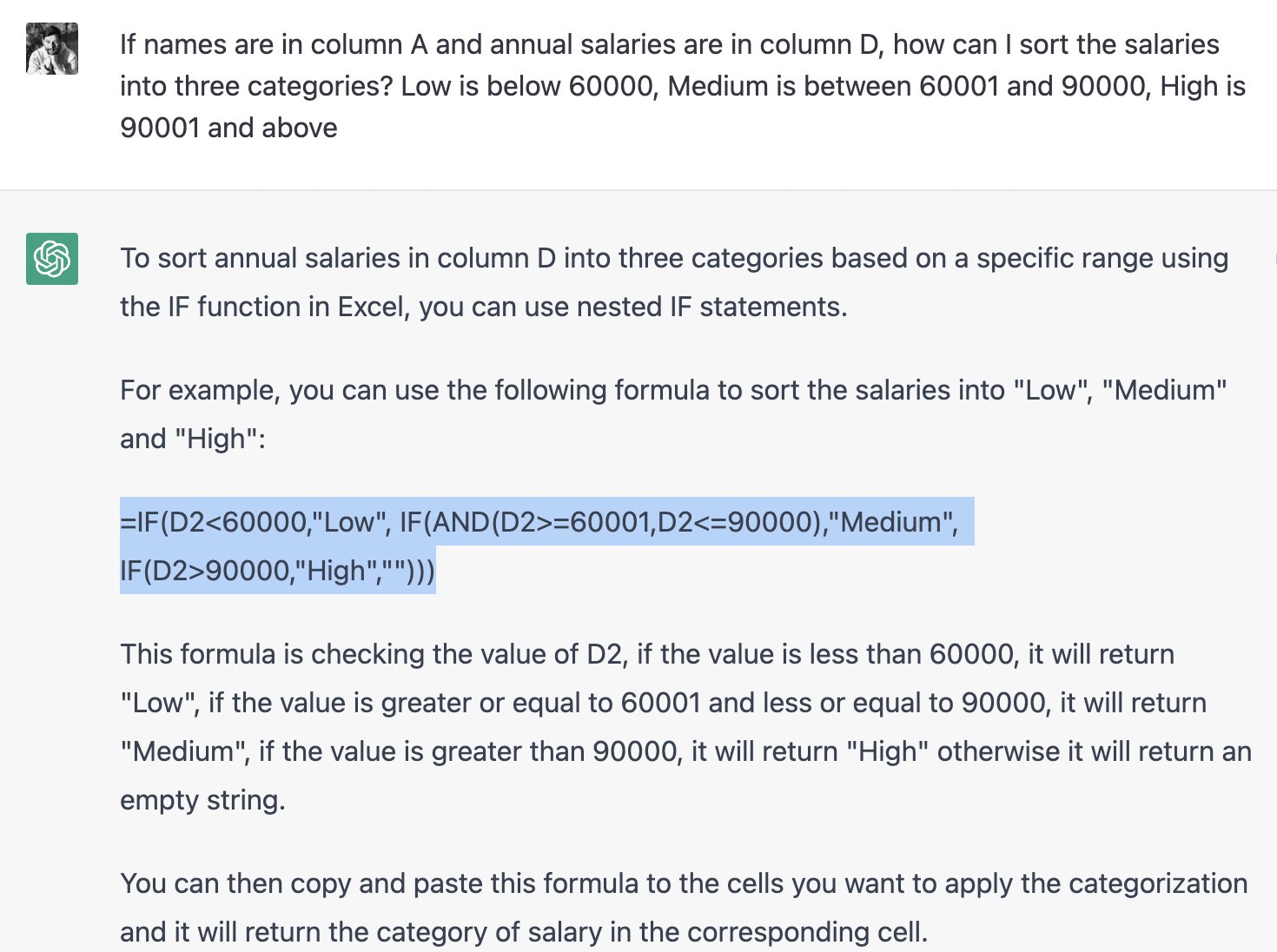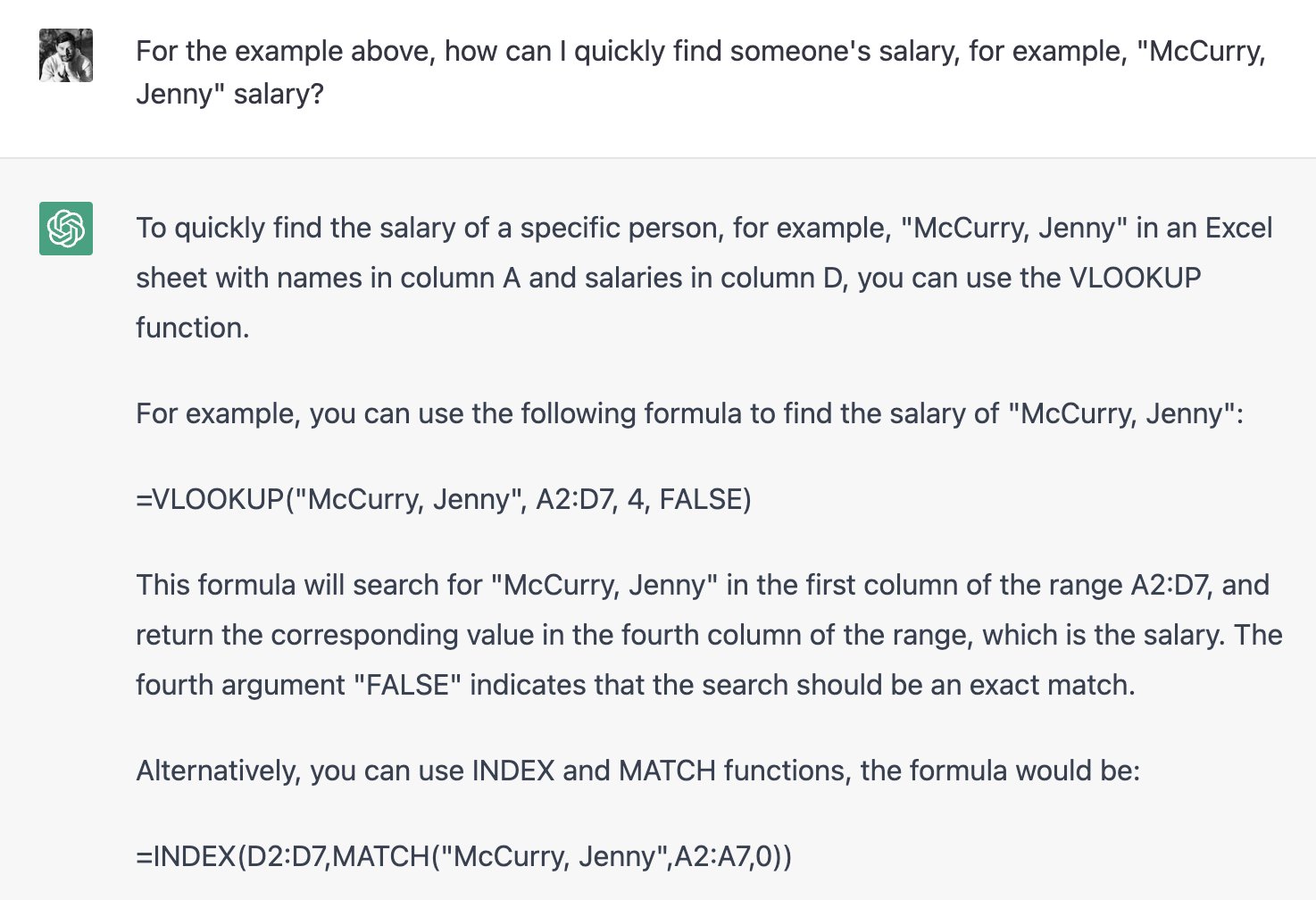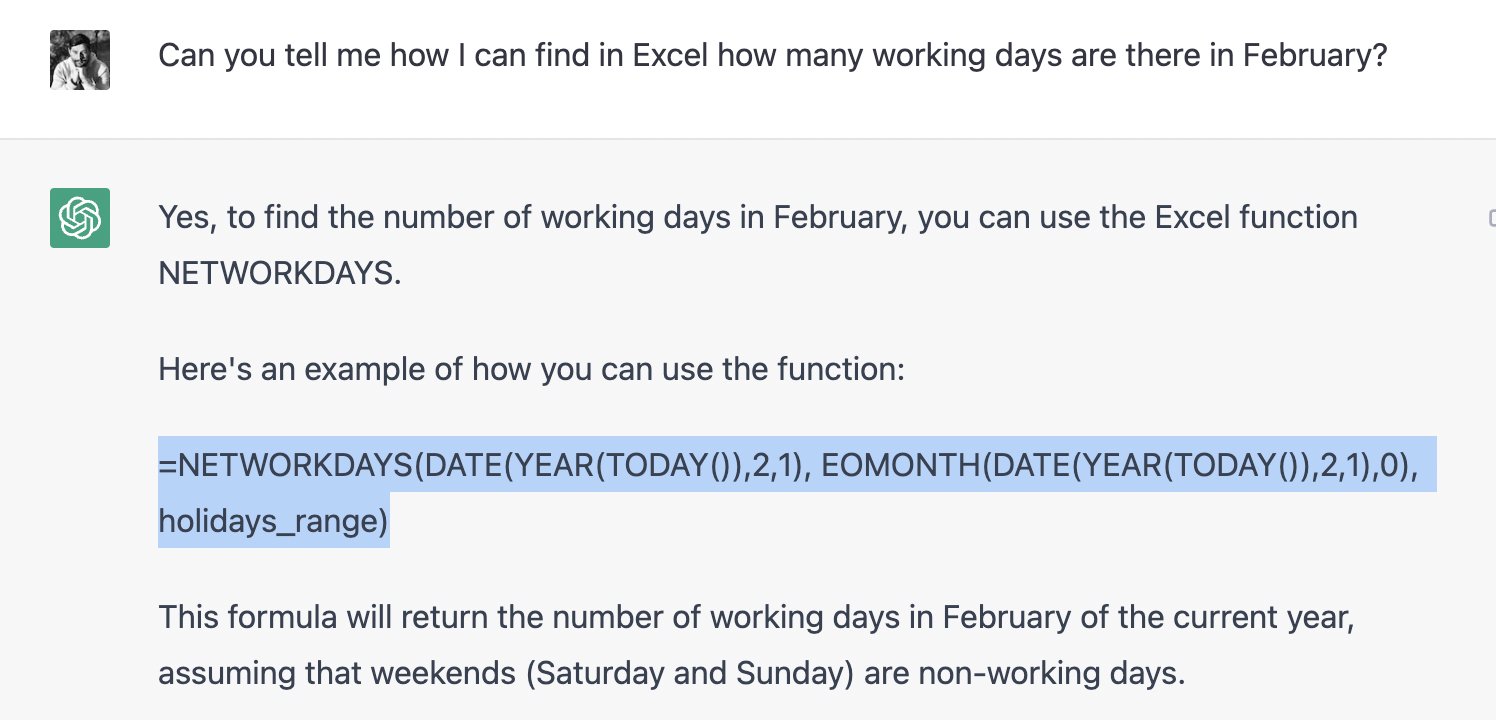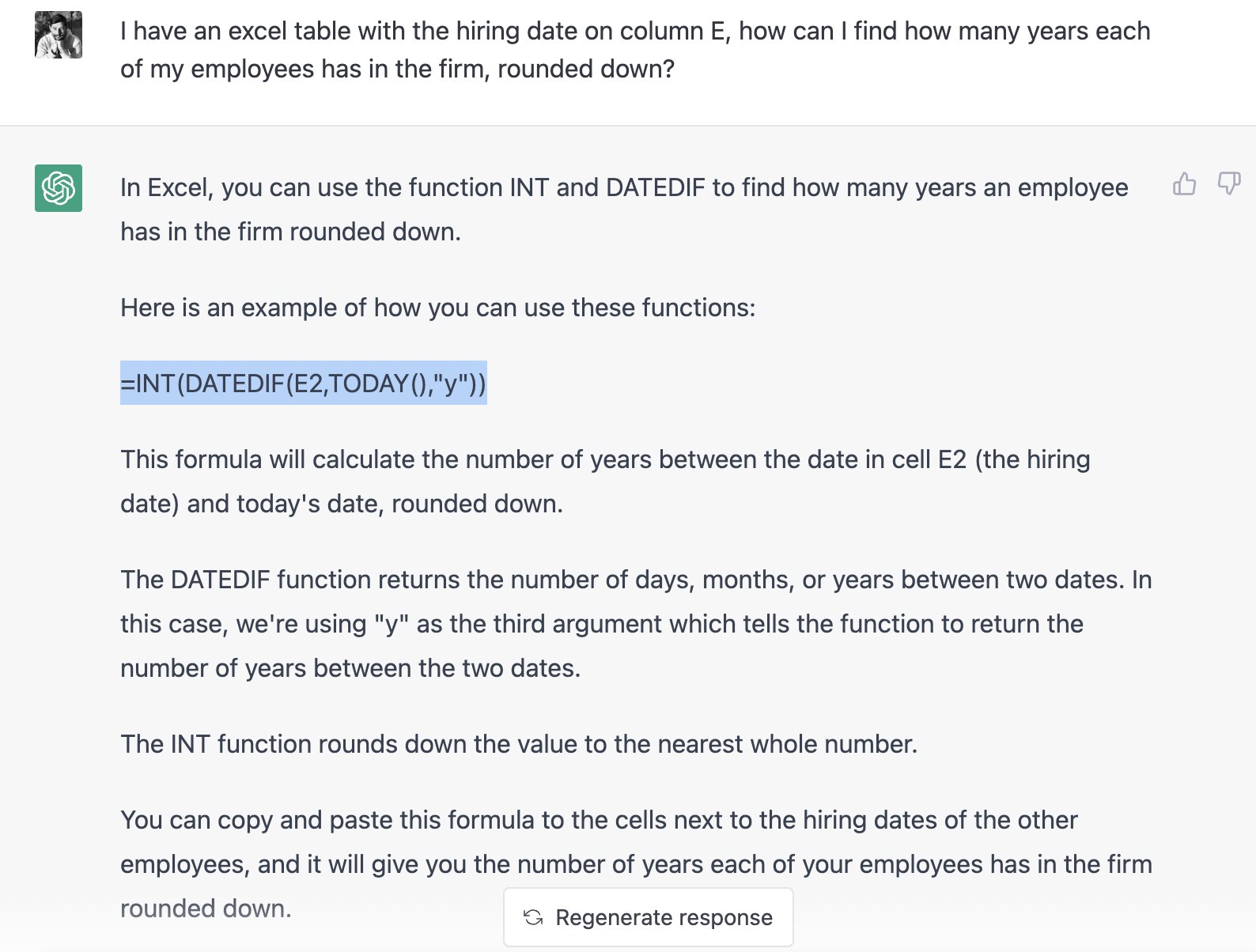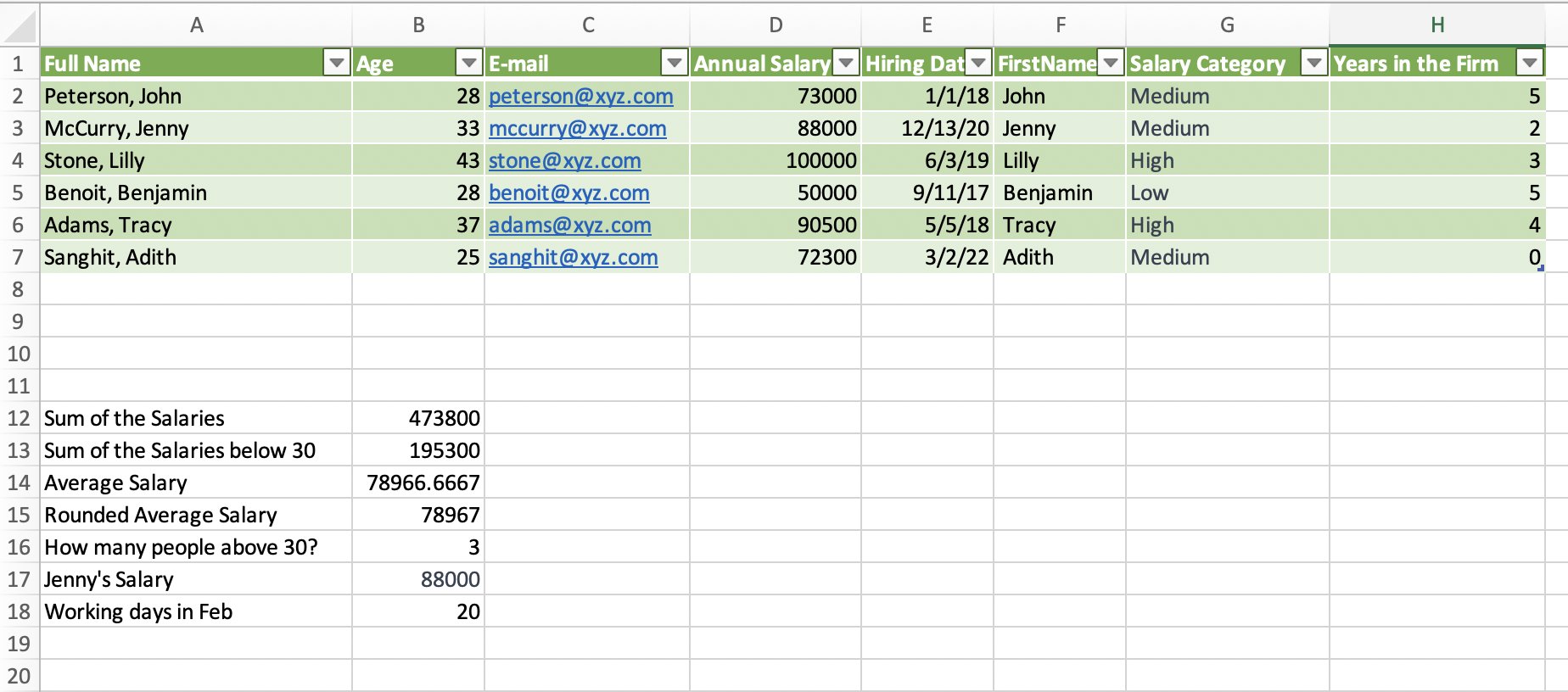Thread
All business people use Microsoft Excel.
But not everyone can dedicate 40+ hours to learning it.
Here’s how Chat GPT can write the 10 formulas that will put you ahead of 90% of people:
But not everyone can dedicate 40+ hours to learning it.
Here’s how Chat GPT can write the 10 formulas that will put you ahead of 90% of people:
1/ SUM
Sum is pretty simple if you've worked with Excel before.
If you haven't, no worries, go to Chat GPT and type the text in the photo.
This will give us the total annual salaries for the team.
=SUM(D2:D7)
Sum is pretty simple if you've worked with Excel before.
If you haven't, no worries, go to Chat GPT and type the text in the photo.
This will give us the total annual salaries for the team.
=SUM(D2:D7)
2/ SUMIF
But what about calculating the sum of the salaries for people below 30?
We have a nice little formula for that, and Chat GPT will show us how to use it.
=SUMIF(B2:B7,"<30",D2:D7)
But what about calculating the sum of the salaries for people below 30?
We have a nice little formula for that, and Chat GPT will show us how to use it.
=SUMIF(B2:B7,"<30",D2:D7)
3/ AVERAGE
The next important formula you need to "know" is the average.
Again, go into GPT, write your question, and boom.
=AVERAGE(D2:D7)
The next important formula you need to "know" is the average.
Again, go into GPT, write your question, and boom.
=AVERAGE(D2:D7)
4/ ROUND
If you've followed me, the above average salary will be 78966.66667.
You don't want to work with those kind of numbers.
So Chat GPT will tell you to use the ROUND function to get rid of them.
=ROUND(AVERAGE(D2:D7),0)
If you've followed me, the above average salary will be 78966.66667.
You don't want to work with those kind of numbers.
So Chat GPT will tell you to use the ROUND function to get rid of them.
=ROUND(AVERAGE(D2:D7),0)
5/ RIGHT/LEFT
Now, let's go to some interesting stuff. We want to extract the first name from the "name" column.
If we try the first formula that GPT gives us, we will notice it's not correct.
Nobody's perfect.
Just use the second one, and it works.
Now, let's go to some interesting stuff. We want to extract the first name from the "name" column.
If we try the first formula that GPT gives us, we will notice it's not correct.
Nobody's perfect.
Just use the second one, and it works.
6/ COUNTIF
Now we're getting into the serious stuff.
We want to filter when we calculate stuff.
For example, let's see how many people are over 30 on the team.
=COUNTIF(B2:B7,">30")
Now we're getting into the serious stuff.
We want to filter when we calculate stuff.
For example, let's see how many people are over 30 on the team.
=COUNTIF(B2:B7,">30")
7/ Multiple IFs
But what if we want to filter more information? How would we do that?
Let's say you want to categorize the salaries into three categories: low, medium, and high.
=IF(D2<60000,"Low", IF(AND(D2>=60001,D2<=90000),"Medium", IF(D2>90000,"High","")))
But what if we want to filter more information? How would we do that?
Let's say you want to categorize the salaries into three categories: low, medium, and high.
=IF(D2<60000,"Low", IF(AND(D2>=60001,D2<=90000),"Medium", IF(D2>90000,"High","")))
8/ VLOOKUP and INDEX/MATCH
When we're talking advanced stuff, we're talking VLOOKUP and Index/Match.
This will help you get corresponding information, like someone's salary (especially useful when you have a very big table).
Both can help in most cases.
When we're talking advanced stuff, we're talking VLOOKUP and Index/Match.
This will help you get corresponding information, like someone's salary (especially useful when you have a very big table).
Both can help in most cases.
9/ NETWORKDAYS
Excel can quickly tell you how many working days there are in a certain month.
This is very useful if you're a manager who needs to plan and allocate resources.
It can also take into consideration any public holidays or other leave days.
Excel can quickly tell you how many working days there are in a certain month.
This is very useful if you're a manager who needs to plan and allocate resources.
It can also take into consideration any public holidays or other leave days.
10/ DATEDIF
Want to know how long it's been since someone got hired or received their latest promotion?
Chat GPT will successfully suggest the "DATEDIF" function, to calculate the difference between 2 moments in time.
It works for years, months, and days.
Want to know how long it's been since someone got hired or received their latest promotion?
Chat GPT will successfully suggest the "DATEDIF" function, to calculate the difference between 2 moments in time.
It works for years, months, and days.
TL;DR: The 10 formulas that will put you ahead of 90% of people.
• IF
• SUM
• SUMIF
• ROUND
• DATEDIF
• COUNTIF
• AVERAGE
• VLOOKUP
• RIGHT/LEFT
• NETWORKDAYS
• IF
• SUM
• SUMIF
• ROUND
• DATEDIF
• COUNTIF
• AVERAGE
• VLOOKUP
• RIGHT/LEFT
• NETWORKDAYS
If you enjoyed this thread, please:
1. Follow me (@theleoalexandru) for more tips on Career Growth, Management, and Leadership.
2. Retweet the 1st tweet below to share this thread with your friends.
1. Follow me (@theleoalexandru) for more tips on Career Growth, Management, and Leadership.
2. Retweet the 1st tweet below to share this thread with your friends.
If you liked this, you'll love my Ultimate Productivity Guide.
Get it here: leoalexandru.ck.page/ultimate
Get it here: leoalexandru.ck.page/ultimate
Mentions
See All
Kurtis Hanni @KurtisHanni
·
Jan 24, 2023
This is great!

